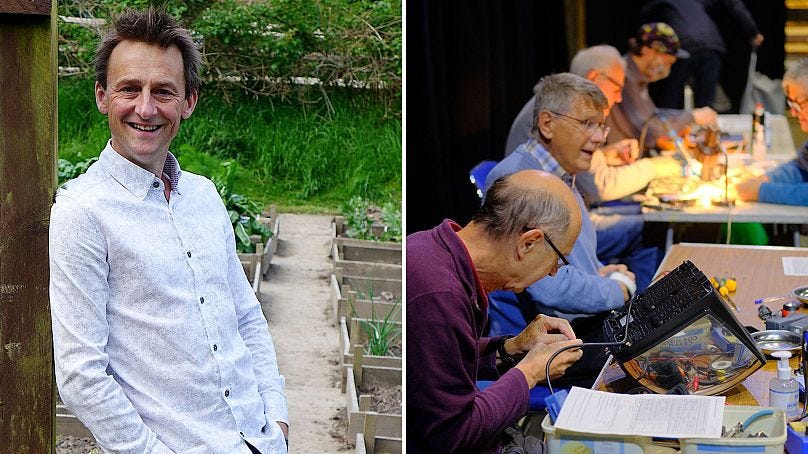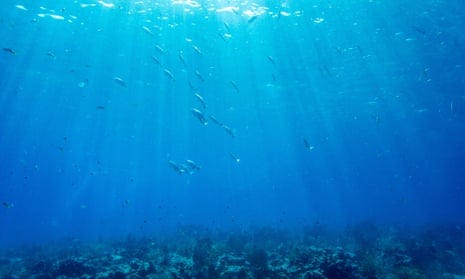Sunny climate, stormy climate | Weekly digest #14
This week we talk about how a Tiktok celebrity group is helping clean up rivers in Indonesia, free repair cafes springing up across the world and the winter heat wave that has gripped South America!
For the ones who are new here - Every week I bring to you 5 stories about the changing climate and its impact on us!
3 stormy ones - concerning stories that are a source of alarm
2 sunny ones - green shoots that tell you that all is not yet lost
If you would like to get future editions of the newsletter delivered to your mailbox, please hit subscribe.
Sunny news
Tiktok stars are helping clean rivers in Indonesia
Pandawara is a group formed by 5 men in Indonesia in 2022 after flooding caused by rivers clogged with rubbish damaged their homes.
They started by cleaning up the rivers in their neighbourhood protected by just rubber hand gloves and boots. They created a Tiktok and Instagram profile and started putting up pictures and videos of the clean ups.
Today, On TikTok, their profile – @pandawaragroup – contains over 100 short videos of their river and beach clean ups, amassing 9 mn followers, millions of views and over 100 million likes.
On 10 July, the group cleaned up 300 tons of waste from a beach in Lampung on Sumatra island, where 3,000 people turned up to help.
Why is this important?
The Greater Bandung area where they live produces 2,000 tons of waste each day, 10 to 20% of which doesn’t make it to landfill and often ends up in rivers. The issue mirrors that facing the wider country - Most of the country’s food and plastic waste landfills are overcrowded.
This unmanaged waste ends up in rivers, clogging them. This has a negative impact on biodiversity and can increase chances of flooding.
Sources to read further:
Repair cafe’s spring up in the UK and Europe to offer free repair services.
This is Chris Murphy, the organiser of Tunbridge Wells Repair Cafe.
He set up the Tunbridge Wells repair cafe in 2019 to repair broken things for free.
In the last 3 years it has grown to have 28 repair stations and 75 volunteers. It runs for one day per month and gets around 70 visitors each time.
The repair cafe is volunteer run and free to use. Visitors can give a voluntary donation.
The cafe offers repair for all kinds of items including electronics, clothing, jewellery, mechanical goods and electrical appliances.
How does this help the environment?
As a society, we are now consuming more than ever. We are also repairing less than ever. This creates 2 problems:
Waste: We generate a lot of waste (Avg. per capita waste in Indian metros is 800 gm/ day). Waste is often not managed properly and ends up in landfills producing GHGs or in the open ocean.
Produce more: When we don’t repair stuff, we buy more stuff. Which means more stuff needs to be manufactured, which needs more resources. Also the manufacturing process itself can be very harmful to the environment.
Hence, repairing stuff and buying less new stuff helps the environment
Does something like this exist in India?
There are actually a few such initiatives in India already. Here is one in Bangalore and Hyderabad - Repair cafe collective
Sources to read further:
Repair cafe - Tunsbridge wells (Euronews.green)
Stormy news
Winter is NOT coming. There is a heat wave in South America at the peak of winter!
Now should be South America’s bleak midwinter, but several parts of the continent are experiencing an extraordinary unseasonal heatwave
Argentina’s capital, Buenos Aires, this week recorded its hottest 1 August in 117 years.
Last Tuesday was the hottest day in Chile in 70 years, with temp rising to almost 40 C. The heatwave in the central Chilean Andes is melting the snow below 3,000 metres (9,840ft).
Five years ago, winter in Paraguay made for chilly days, but now it’s 30C-35C in the winter.
Sources to read further:
The ocean is boiling! Ocean temperatures reach an all time high.
Last week, we spoke about how July was the hottest month ever, in terms of surface air temperature. (1st story here)
We now know that last week was also the hottest week for our oceans.
Global average daily sea surface temperatures (SST) hit 20.96C this week, breaking the record of 20.95C reached in 2016, according to the Copernicus climate modelling service.
Source: Ocean surface hits highest ever recorded temperature and set to rise further (Guardian)
Air pollution may contribute to antibiotic resistance
As if air pollution wasn’t bad enough already (is linked to asthma, lung cancer, lower life expectancy), new studies show it also results in antibiotic resistance.
Antibiotic resistance is one of the fastest-growing threats to global health. It can affect people of any age in any country and is already killing 1.3 million people a year, according to estimates.
The main drivers are still the misuse and overuse of antibiotics which are used to treat infections(directly for humans or given to animals that are then consumed by humans). But the study suggests the problem is being worsened by rising levels of air pollution.
What is antibiotic resistance?
Antibiotic (also called Antimicrobial) resistance happens when germs like bacteria and fungi develop the ability to defeat the drugs designed to kill them. This can be a major obstacle in treatment of bacterial diseases.
Sources for further reading:








Thanks Sailee for sharing about repair cafes. Wasnt aware!